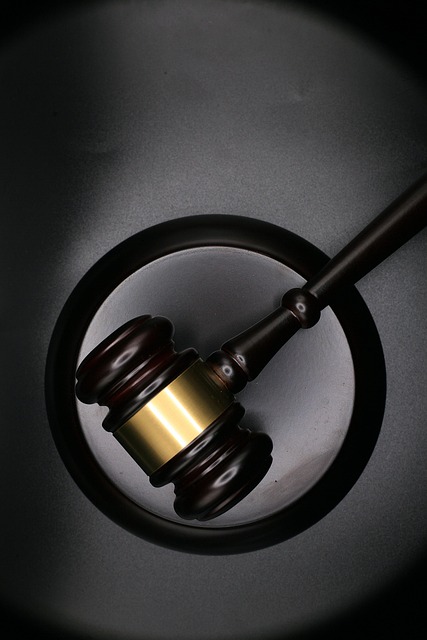RF Regulatory Agency investigations ensure safe RF technology by addressing safety standard violations and regulatory non-compliance. Class action lawsuits empower consumers to seek justice collectively, with specific eligibility criteria. Robust evidence gathering and strategic defense planning are crucial during these investigations, enhancing the chances of a successful "How to File Class Action Lawsuit Claim" outcome.
In today’s complex landscape, understanding RF (Radio Frequency) Regulatory Agency investigations is crucial for businesses and consumers alike. This article provides an in-depth guide to navigating these processes, focusing on how to file a successful class action lawsuit claim. We explore eligibility criteria, the art of gathering and documenting evidence, and offer a step-by-step legal proceedings checklist. By delving into these aspects, you’ll gain insights into protecting your rights and enhancing your chances in RF-related legal battles, especially when considering a class action approach.
- Understanding RF Regulatory Agency Investigations
- Eligibility Criteria for Class Action Suits
- Gathering Evidence and Documenting Claims
- Navigating Legal Proceedings: A Step-by-Step Guide
Understanding RF Regulatory Agency Investigations

RF Regulatory Agency Investigations play a pivotal role in ensuring the safe and responsible use of radiofrequency (RF) technologies. These inquiries are triggered by potential violations of RF safety standards or regulatory compliance issues related to devices emitting RF energy. When an investigation uncovers significant non-compliance, it can lead to high-stakes cases with far-reaching consequences for manufacturers and distributors.
Understanding the process is crucial, especially for consumers considering a How to File Class Action Lawsuit Claim. Across the country, these investigations have an unprecedented track record of holding negligent parties accountable. By delving into complex matters, regulatory agencies uncover violations that may impact public health and safety, prompting necessary changes in industry practices. This proactive approach ensures RF technologies are used ethically and securely.
Eligibility Criteria for Class Action Suits

Class action lawsuits are a powerful tool for consumers and groups affected by similar harms to seek justice and compensation collectively. To be eligible for a class-action suit, individuals or organizations must meet specific criteria. These typically include shared injuries or damages arising from the same conduct or events, and a desire to hold the responsible party accountable. The key is to demonstrate that the claims are suitable for resolution on a class basis, ensuring all members have a common interest in the outcome.
When considering how to file a class-action lawsuit claim, understanding these eligibility criteria is essential. This approach allows for a more efficient and effective legal process, where a single judgment or settlement can provide relief to numerous individuals without the need for individual litigation. With an unprecedented track record of success and compensation, these suits not only serve justice but also encourage businesses to adhere to regulatory standards, benefiting both the philanthropic and political communities by fostering accountability.
Gathering Evidence and Documenting Claims

When initiating an RF Regulatory Agency investigation, gathering robust evidence is paramount. This process involves meticulous documentation and a structured approach to claim formulation. Legal professionals play a crucial role in guiding clients through this phase, ensuring all relevant facts are accurately preserved. By collecting comprehensive records, financial transactions, and expert opinions, the groundwork for a compelling case is established.
For those considering a How to File Class Action Lawsuit Claim, it’s essential to document every interaction and transaction related to the alleged RF Regulatory violation. This includes preserving communications, contracts, and any evidence of economic losses incurred due to suspected white collar and economic crimes. A thorough documentation process increases the likelihood of achieving a complete dismissal of all charges, which can be beneficial for both individuals and businesses facing regulatory scrutiny.
Navigating Legal Proceedings: A Step-by-Step Guide

Navigating legal proceedings related to RF Regulatory Agency investigations can be complex, but understanding the steps involved can help individuals and businesses prepare effectively. The first step is to gather all relevant information and documents pertaining to the case. This includes any communication with regulatory bodies, technical specifications of devices under scrutiny, and records of previous interactions or inspections.
Once these materials are compiled, the next crucial phase is consulting with legal experts specialized in RF regulations and, if applicable, general criminal defense. They can provide guidance tailored to the specific allegations and help formulate a strong defense strategy. If the case progresses and a class-action lawsuit is considered, it involves coordinating efforts across the country, leveraging an unprecedented track record of success, and ensuring every affected party’s rights are protected throughout the process.
RF Regulatory Agency investigations can significantly impact businesses and consumers alike. Understanding the eligibility criteria for class action suits is a crucial step in navigating these legal proceedings. By gathering strong evidence, documenting claims effectively, and following a structured guide, individuals can enhance their chances of success when filing a class-action lawsuit. Remember, knowing How to File Class Action Lawsuit Claims is essential to ensuring your voice is heard and seeking the justice you deserve.






